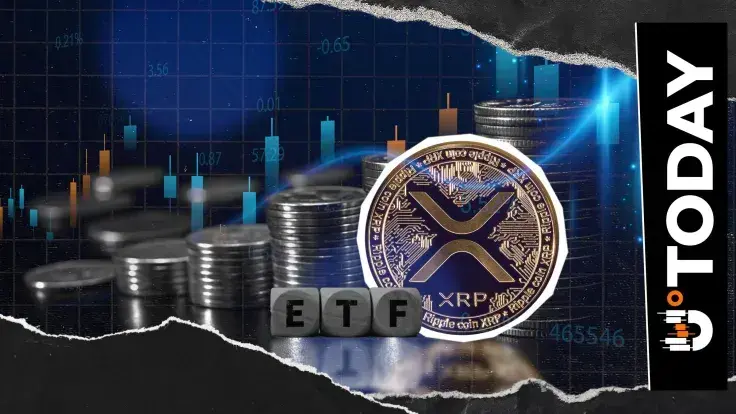In-depth analysis of the prediction market Polymarket and the legal risks involved in its promotion.
Author: Liu Zhengyao
introduction
A few days ago, I wrote an article about prediction markets titled "Is Polymarket Gambling? Are There Legal Risks for Chinese Players?" Since then, many friends have contacted me with detailed questions. Therefore, we will conduct another in-depth analysis and interpretation of prediction markets, especially the Polymarket platform, and explain the legal risks involved, and how high they are.
I. Differences between Polymarket and Traditional Casinos
In the previous article, the author argued that projects on the Polymarket platform are considered gambling under Chinese mainland law, thus making Polymarket itself a casino. However, I did not elaborate on the differences and similarities between Polymarket's gameplay and traditional casinos.
"What you learn from books is never enough." Attorney Liu also took the plunge and experienced Polymarket firsthand with an academic mindset, gaining a deeper understanding and appreciation of it.
First, Polymarket differs from traditional gambling websites in that it is deployed on a blockchain (Polygon Chain) network, without the centralized servers of gambling websites, and without the control of real casinos.
Secondly, in terms of operation mechanism, Polymarket relies on the occurrence and outcome of real-world events, which are automatically executed by blockchain smart contracts, making it more like a "bet" between users; while traditional casinos (including gambling websites) rely more on human manipulation of gambling tools (such as dealers dealing cards) to randomly generate results. Casinos are under centralized management, and the flow of funds is not transparent. Players gamble against the casino, and the casino can set the odds, so the house always has the advantage.
Finally, their social functions differ. Polymarkets, by aggregating market expectations, can reflect public forecasts relatively clearly (even precisely), thus possessing certain social functions, such as providing trend references for certain policies. Traditional casinos, however, are purely for entertainment and gambling. Polymarkets can, to some extent, help academia, media, and research institutions conduct social research (when the sample size is large enough) and understand group expectations and probability pricing. However, traditional casinos do not have any significant positive effects. According to mainstream opinion in mainland China, polymarkets have some positive energy, but casinos have absolutely no positive energy.
However, this does not mean the author encourages everyone to play Polymarket. The binary prediction mechanism on Polymarket still falls under the category of gambling under Chinese law, a classification that is unlikely to change. This leads to the second topic of this article: what are the risks of promoting Polymarket?
II. Legal Risks of Promoting Polymarket
A quick search reveals that multiple companies and individuals are already promoting Polymarket on various platforms.
While there are certain risks for ordinary players participating in Polymarket—since it may be considered gambling and players could face legal consequences ranging from gambling-related crimes to administrative penalties—these risks are generally manageable. However, promoting Polymarket is a completely different matter.
According to the "Opinions on Several Issues Concerning the Application of Law in Handling Online Gambling Crime Cases" issued by the Supreme People's Court, the Supreme People's Procuratorate, and the Ministry of Public Security on August 31, 2010, the following circumstances may constitute the crime of operating a casino:
- First, acting as an agent for gambling websites and accepting bets, thus organizing gambling activities online.
- Secondly, although the companies or individuals promoting Polymarket in China have not personally established the Polymarket platform, they could potentially be accomplices in the crime of operating a casino if they meet the following conditions:
- "Providing services such as internet access, server hosting, network storage space, communication transmission channels, advertising, membership development, software development, and technical support to gambling websites, and charging service fees of more than 20,000 yuan."
Therefore, it is clear that promoting Polymarket in mainland China carries far greater legal risks than simply participating in Polymarket. Thus, Attorney Liu advises everyone not to promote or introduce others to Polymarket.
III. In Conclusion
While the author believes that Polymarket has its unique social value and can even be considered a financial product to some extent, due to China's regulatory policies and the multiple problematic aspects of the Polymarket platform, such as gambling (or at least suspected gambling), virtual currency, and political sensitivities, the author does not recommend that anyone participate deeply, and especially should not promote Polymarket.
You May Also Like

BREAKING: Coinbase Lists Four Altcoins for Futures Trading

Pepe Coin Price Prediction: JPMorgan’s $170K Bitcoin Forecast Started Crypto Rally, DeepSnitch AI, and DeAgentAI to 100x

